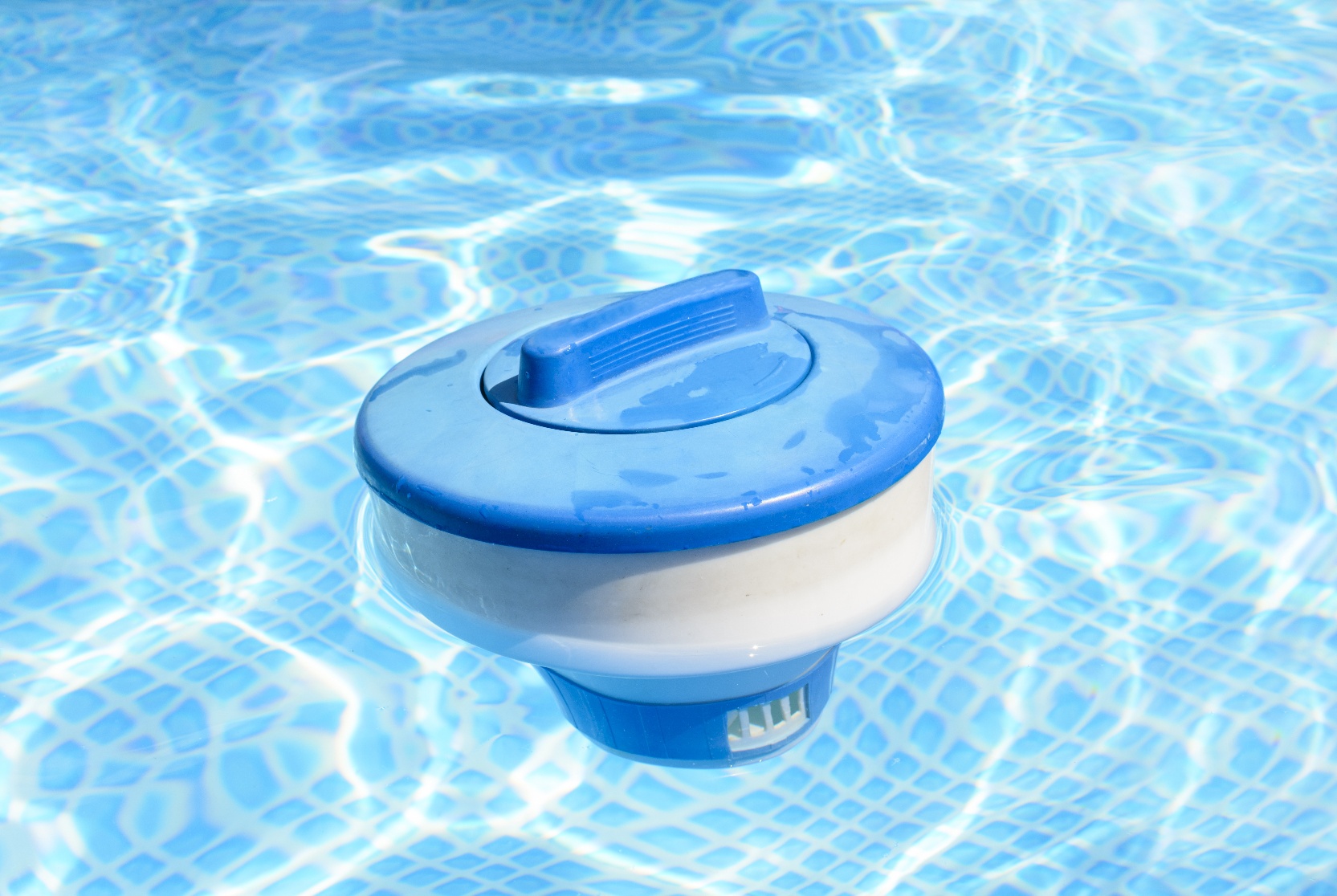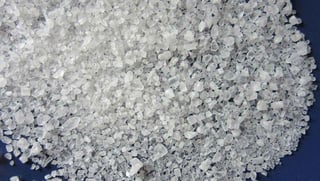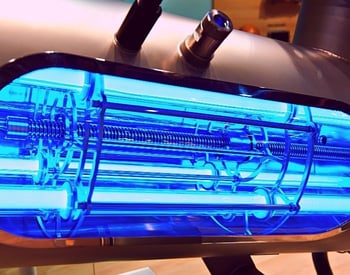Why is Swimming Pool Chlorine So Expensive? Alternatives for a Chlorine Shortage
April 30th, 2021
4 min read

Pool buyers and owners have had a challenging year. If you didn’t have a pool when the COVID-19 lockdowns started, you probably ran into higher prices, longer waits, and less availability overall -- whether that availability meant pool-building components like pipes and fittings, or accessories like pumps, filters… or chlorine tablets.
We recently covered supply chain issues affecting the pool building industry in another blog post (click the link to read more). In that post, we focused on the materials and accessories needed to manufacture and install fiberglass pools. Since its publication, we’ve become aware of supply chain issues affecting some critical components pool owners need to maintain existing fiberglass (and other) pools.
Chlorine is one such component.
Many pool owners use chlorine tablets, granules, or liquid to keep their pool water free of algae and unwanted pathogens, like bacteria or other unpleasant organisms. Chlorine is a tried-and-true way to control microorganisms in pool water, and it’s been a popular water treatment method for decades.
However, in 2021, pool chlorine is in increasingly short supply.
Let’s talk about why this is happening now, how it might affect pool owners like you, and some ways in which you might be able to overcome the Great Chlorine Shortage of 2021.
It’s supply and demand
Supply and demand affects everything with a price tag. If there’s a ton of something, but few people want it, the folks selling that “something” will have to keep lowering prices until they get some interest. If something’s in short supply, buyers may have to offer more money until the folks with that scarce “something” are willing to part with it.
In normal times, chlorine is easy to buy in pool supply stores, home improvement outlets, and from any number of online retailers, from Amazon and Walmart to specialty storefronts. Supplies are steady, so prices are reasonable.
However, there aren’t a lot of companies that make pool chlorine tablets. It’s an industry dominated by a few major players.
The perfect storm of chlorine problems
 Last summer, one of the largest chlorine manufacturers -- KIK, which owns or licenses many of the most popular chlorine-based brands in the U.S. -- went down in literal flames. A Louisiana facility operated by its BioLab chemical subsidiary got slammed by Hurricane Laura, which somehow caused a major fire that burned for nearly three days before it could be put out.
Last summer, one of the largest chlorine manufacturers -- KIK, which owns or licenses many of the most popular chlorine-based brands in the U.S. -- went down in literal flames. A Louisiana facility operated by its BioLab chemical subsidiary got slammed by Hurricane Laura, which somehow caused a major fire that burned for nearly three days before it could be put out.
The BioLab plant was essentially destroyed by the hurricane and the fire. Rebuilding only began a month ago, and it’s expected to be another year before BioLab’s chlorine plant is back in action.
Without BioLab cranking out chlorine for pool owners, the remaining chlorine manufacturers simply haven’t been able to keep up with demand. Reports we’ve seen have noted a 40% rise in chlorine prices from last spring, and some industry analysts expect chlorine prices to be 60% higher during 2021’s summer pool season than they were in 2020.
This price spike doesn’t fully capture the scale of the problem. You’ll pay more for chlorine this year… if you can even find it. Many pool supply stores are preparing for shortages, which means you might not be able to get chlorine tablets at any price.
As a pool owner, you have a few options for dealing with this chlorine shortage.
You could stock up now, and buy enough chlorine to treat your pool all summer long, provided you can find enough supply and are willing to pay current prices.
If you’d rather look into alternatives…
Alternatives to chlorine in pools
Bromine
Bromine is chemically similar to chlorine, and both can be used the same way. There are a few differences between how chlorine and bromine affect the human body, which we’ve covered in our detailed Chlorine vs. Bromine review post.
Bromine is typically produced from brine (salty water), and the industry is dominated by four big manufacturers -- two U.S. companies produce bromine in Arkansas, and two international companies are based in the Middle East, near the extremely salty Dead Sea. These locations are less prone to extreme weather, and as far as we know, bromine production is still running at full capacity.
Salt chlorine generators (saltwater pool systems)
Many fiberglass pool owners use salt chlorine generators, which convert pool salt (there are three types of pool salt we recommend) to chlorine. Saltwater pools are considered easier on the body -- skin, eyes, hair, and so on -- but are not true “salt water” like the oceans, or the Dead Sea.

Converting a chlorine pool to a salt system isn’t as simple as dumping a bag of salt in the water. You need a special device called a salt chlorine generator, which uses electricity to convert the salt in your pool water into chlorine.
Saltwater pools often require salt-compatible fittings and accessories, so you may not be able to switch over to a salt system if your current pool setup doesn’t have the right equipment. We recommend talking to a trusted pool professional before trying to switch from chlorine to salt -- they should be able to tell you if your existing systems are salt-compatible.
Fiberglass pools are the best type of pool for salt water systems, but that doesn’t mean you can just set it and forget it. Salt systems are generally easy to maintain, you’ll still need to monitor and test your pool water frequently to maintain proper chemistry.
Read more about salt chlorinators and salt water pools:
- What is a Saltwater Pool? Chemistry, Lifespan, Cost, and More
- Saltwater Pools vs. Chlorine Pools
- Inground Saltwater Pool Cost: Salt, Cells, Generators, and More
- Should I Use Salt Chlorine With My Swimming Pool?
- Should I Get a Salt Water Generator For My Pool?
- Saltwater Pool Conversion: Cost, Steps, Pros, Cons
- Top 5 Salt Water Chlorine Generator Problems
Pool UV systems
A pool UV system (or pool sanitizer) uses the UV spectrum of light to sanitize your pool water. UV systems still require some chlorine, but typically require far less chlorine than salt water or traditional chlorine feeder systems.

UV systems might not be the best choice if you fight frequent battles with with algae and/or other water chemistry issues. However, they can be viable ways to augment chlorine treatments while reducing your overall use of chlorine.
Read more about pool UV systems here.
Other pool sanitizers
We’ve written quite a few articles about pool cleaning and sanitization systems and methods. You may also be able to use:
- Pool ozone systems (ozonators)
- Pool ionizers
- Hydrogen peroxide
- Natural pools (plant-based filtration)
Check out our best articles on pool sanitation solutions here:
- Swimming Pool Sanitizers: 7 Best Options
- How to Keep Your Pool Water Clean and Prevent Pool Parasites
- What is Pool Ozone? How it Works, Cost, Pros, and Cons
- What Is a Pool Ionizer? Cost, Problems, Pros, and Cons
- Baquacil (Hydrogen Peroxide): Why It's a Rip-Off
- What is a Natural Pool? Filtration, Costs, and Pros and Cons
You don’t have to be caught without chlorine this summer. You’ve got plenty of other ways to keep your pool clean and enjoyable! But if you have any questions about keeping your pool water healthy, don’t hesitate to reach out to us today.
River Pools is a brand of world-class inground fiberglass pools for customers across North America. If you're shopping around for a fiberglass pool, feel free to take a look at our catalog of models, visit our extensive video library, try out our pool cost calculator, or request custom pricing using the button below.
Editor's note: This article was updated on June 6, 2024.
Marcus Sheridan is a co-founder of River Pools® Virginia and a leading voice in the fiberglass pool industry, known nationally for his commitment to educating homeowners about inground pools. Over the past two decades, Marcus has helped thousands of families confidently navigate the pool buying process with transparency and trust. His straightforward, educational approach has helped make River Pools a go-to resource for fiberglass pool buyers across the country. When he’s not writing or speaking about pools, Marcus helps businesses embrace honest communication to better serve their customers.
Topics:

